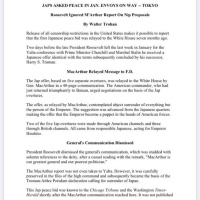感情の定義ができない状況では人間理性の活動がなんであるかも理解できないだろう。実は感情は理性と対立するものではなく理性の一種である。論理的判断の基盤が変われば、感情も変わる。経験を積んだものにとって感情は一通りの答えではない。一言で言えば、感情は生存情動の解釈体系=哲学による、神経化学的肉体情動の再解釈である。1960年代にはドラックによる再解釈が盛んだった。しかしそれが薬物作用ではなく、日常的情動であった場合も全く同じ再解釈だということに人間はなかなか気づいてくれない。神経化学的非常事態は日常では得られないと思っている。しかし涙を流すことひとつをとってみても、経験、つまり大脳皮質が作用に関係する。そのことが神経化学的非常事態を招くことさえある。神経化学的幸福感、低レベルのドーパミンの不足がもたらす判断力(情動の記憶)の歪み(多幸感に支配された決断)もまた感情という理性である。感情の時間的空間的集中は法令や契約を超えた社会関係のゲームチェンジャーでさえある。
間違った設問 感情は理性の敵である。
『正しい』答え 感情の抑制が正確な判断を保証する。
正しい答え 感情は理性の仲間である。豊かな感情は知性。
感情とは、神経生理学的な変化によって引き起こされる生物学的な心理状態であり、思考、感情、行動反応、快・不快の度合いなど様々な要素が関連している。 現在のところ、科学的な定義には合意がない。感情はしばしば、気分、気質、性格、気質、または創造性と絡み合っている。
- Panksepp, Jaak (2005). Affective neuroscience : the foundations of human and animal emotions ([Reprint] ed.). Oxford [u.a.]: Oxford Univ. Press. p. 9. ISBN <bdi>978-0195096736</bdi>.
Our emotional feelings reflect our ability to subjectively experience certain states of the nervous system. Although conscious feeling states are universally accepted as major distinguishing characteristics of human emotions, in animal research the issue of whether other organisms feel emotions is little more than a conceptual embarrassment
- ^ Damasio AR (May 1998). "Emotion in the perspective of an integrated nervous system". Brain Research. Brain Research Reviews. 26 (2–3): 83–86. doi:10.1016/s0165-0173(97)00064-7. PMID 9651488. S2CID 8504450.
- ^ Ekman, Paul; Davidson, Richard J. (1994). The Nature of emotion : fundamental questions. New York: Oxford University Press. pp. 291–93. ISBN <bdi>978-0195089448</bdi>.
Emotional processing, but not emotions, can occur unconsciously.
- ^ Cabanac, Michel (2002). "What is emotion?" Behavioural Processes 60(2): 69–83. "[E]motion is any mental experience with high intensity and high hedonic content (pleasure/displeasure)."
- ^ Jump up to: a b Scirst=Daniel L. (2011). Psychology Second Edition. New York: Worth Publishers. p. 310. ISBN <bdi>978-1429237192</bdi>.

























